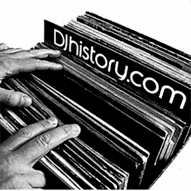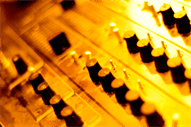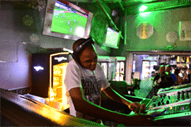Everybody wants to be a DJ: and quite right too
Wednesday, November 1, 2017
by Tat
It was way back in 1989 when De La Soul famously said: "Everybody wants to be a DJ" and almost 30 years on from that profound line from 'The Magic Number' they are very close to the truth. You do not have to look very far to see how deep DJ culture has permeated modern, global culture. Bill Brewster and Frank Broughton superbly captured DJ culture and its rise from a few individual mavericks to the global phenomenon it has truly become. To the outside it is just a collection of people playing other people's music and whilst there is some truth in that for many DJs, it has become so much more in the last few decades. The DJ has long been an educator, tastemaker, entertainer and at times antagonist. Now they operate on a multitude of levels from producer to remixer, from bedroom to podcast DJ, the club version remains ever present but their environment is changing, ever going forward. There are various reasons for that, changes to music tastes remain ever present, but licensing, demands by paying fans and new landscapes make DJing truly global.
Everybody wants to be a DJ
There is a lot of snobbery that comes with DJing, many of us have been guilty of that, even after retiring from the DJ booth, like ex-footballers and their punditry, we can stand on the touchlines making observations about the new sounds and technology. This is before we start getting into arguments over laptops, WAVs, mp3s and syncs. This commentary is no less important as long as it is factual, critical and constructive. You do not need to go to a club to understand modern dance music any more than you need to go to the cinema to appreciate the latest movie. Dance music and club culture are one and the same, but the former no longer needs the latter to be enjoyed. Dance music is infectious and stirs up an awful lot of passion from DJs, producers and listeners. There is the old school, new school, the underground and the commercial, all of which is often at odds with itself. That is because dance music for all of its forms has a wonderfully addictive element that you simply don't give it up because you get a family and a day job.
The changing DJ landscape
For myself, except for a rare gig at a festival, bar or party, I have long retired from DJing in clubs. I still buy lots of music and follow various music scenes intensely, I still have my decks and a Traktor controller. I still know plenty of active DJs, some of which started at the same time as myself in the late 1980s and are still going strong. Instead I switched to internet radio in 2006 and deliver a regular live show and podcast of eclectic tracks I pick up along my travels. That is what makes dance music in 2017 so good, that you can take it where you want to as a DJ. In 1987 when I got my first turntables there were just a few types of DJs, commercial, mobile, pirates and underground in all their various strands. We still have these types, although the mobile DJ has declined due to the likes of iTunes, Spotify and digital playlists delivering the dancefloor soundtrack at your local wedding. The commercial DJ was very prominent in the 1980s but what defines commercial (Sharon and Tracy clubs as we called them) have changed considerably. Party nights for students and weekend revellers continue to go out. Yet you are likely to hear chart hits interspersed with more cooler sounds in the bars and clubs across the globe than the full on pop parties of the 1980s.
The 1990s and the rave scene saw a huge influx of new DJs and that trend has continued to grow in the last 20 years with many good reasons. Firstly DJing was a very expensive pursuit, whether professionally or personally. Pre the turn of the Century you were pretty much limited to physical products, which depending on your tastes could be increasingly expensive. Then there was the kit which could break the bank with a pair of turntables and mixer costing over £1000 just 25 years ago. These days you can spend an incredible amount of money on DJ equipment with laptops, CDJs, mixers and turntables all costing almost as much for one item as my first DJ set up 30 years ago. New DJs can work within their budgets and start relatively small and build up. This is a good thing as the flurry of DJs who splashed out £1000s in the mid 1990s only to realise they were never going to be the next Pete Tong, or they were just not passionate enough, just ended up selling their equipment and records at a great loss. Now you can start with an app or trial piece of DJ software and move onto a controller, before long you will have gone and bought various add ons, drum machines and controllers. DJing is addictive and at least in this situation you will have realised your passion and had time to experiment.
DJs operate further afield
DJing truly became global in the 1990s and continues to do so as dance music has reached into every corner of our globe from Mongolia to Kenya. So whilst more people have got into DJing globally, they also no longer need to leave their own house. It is so very easy to have your own small house party these days with a DJ app on your tablet device, small active PA or hi fi system, a few lights and most importantly good friends. This of course brings up the arguments as to what a DJ is, how do we define them? To quote another tune, this time the old school electro track by Egyptian Lover, who asked: "What is a DJ if he can't scratch?". This is sometimes thrown out, but nearly as much as 'what is a DJ if they can't mix?'. Well this depends on what we define as a DJ, as there is a huge difference between the person who gets paid weekly to play music to crowds and the one who jams in their bedroom? The bar for mixing was lowered with the sync option and again this is an area for argument, but we don't have time for that right now. If you are a bedroom DJ or someone who plays for their friends and who occasionally uploads their mixes to Soundcloud then does it really matter how polished your mixes are? Selection should always trump the mix, if the mix is lousy then people won't listen to it, but if you are doing it for yours and your friends' listening pleasure, does it really matter? Good DJs get to where they are through a variety of reasons, but a truly good DJ will do so because they spend a lot of time doing their research and finding the right tracks. As a passion for DJing grows, so does the desire to seek out more exciting tracks, it can be very time consuming once you start.
 © Bill Brewster - DJ History
© Bill Brewster - DJ History New opportunities for the DJ
Podcasting and internet radio has also opened up a wealth of opportunities for DJs to share their music to wider audiences. There are an ever growing number of internet radio stations that are 2017's take on the old pirate radio networks except with many paying their royalties and dues to the Performing Rights Society and have a legitimate broadcasting licence. DJs can now broadcast from their own home with minimal effort and form collectives of like minded music lovers, many of which are still active or retired from the DJ booth. The web has allowed for a wealth of new DJs to perform on the web to potentially global audiences, like much of the affordable equipment it has lowered the bar of entry so more people can have a go at DJing.
DJing at the highest level has also changed in its demographics with most top flight DJs running record labels and producing tracks of their own. The traditional purist DJ model is much less noticeable at the higher echelon of dance music. This takes us back to the football pundit again, as most commentators on the game are ex players, rather than specialist analysts. To a large extent this is a shame, but it also shows how far dance music has come. David Mancuso dropped sound effects albums in his sets, Jeff Mills introduced a 909 to his, and now DJs are using all kinds of studio kit in their performances. The producer aspect to DJing has indeed made it something different and more substantial when done properly. For those who denied that DJing was an artform back in the 1990s may well think differently now. To add to that there is the turntablist, a DJ who operates in their bedroom, stage and the club and particularly online via YouTube building large followings. Stems also bring another dimension to the DJ arena, which takes us finally onto another level from the phenomenon of acapella mixing that lasted throughout most of the 1990s. The live remix which has been underpinned by the mass move to digital and the fast development of controllers and tools to aid this creative innovation.
Whether DJing remains fashionable only time will tell, but it shows no signs of waning, as we are as passionate about dance music in all of its forms than we ever have been. Walk into any DJ equipment store and the sheer choice of tools is a sign that there is an industry behind this. A huge tech company like Pioneer saw the premature gap left by Technics and jumped in and is now providing the industry standard CDJs and mixers for most clubs. The recent massive investment by private investors of $60m into Native Instruments who own Traktor is another sign that the DJ scene is huge and thriving. So whether you are DJing on your laptop, in your bedroom, in a club and hopefully making money from the industry then as long as you are having fun, keep doing what you do. It does not matter what level it is, enjoy, experiment and be true to yourself as you never know where this DJ journey may lead to.
As with all of the growing amounts of kit and software for DJing, there are also the hundreds of tracks that are released every week. Trackhunter can help you dig through them all to find the very best tunes for your bedroom, club, radio and festival DJ sets.
Every DJ needs to discover digital dance music, try it with Trackhunter







